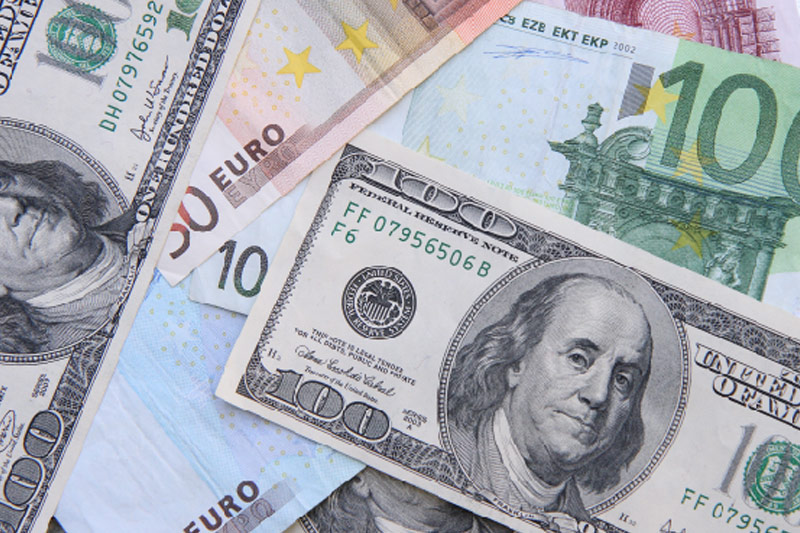Investing.com -- The dollar was consolidating near its highs for 2019 in early trading on Friday, showing little sign of weakening after a week of data and central bank actions that have underlined the relative strength of the U.S. economy, at least for the present.
At 03:00 AM ET (0700 GMT), the dollar index, which measures the greenback against a basket of six major currencies, was at 97.843, down 0.1% from a high of 97.958 touched overnight.
The euro was at $1.1143, after drifting as low as $1.1125 overnight, while the British pound was at $1.2909, having briefly fallen to a two-week low of $1.2867 on Wednesday on growing signs of political instability as the EU parliamentary election campaign cranks up.
Trading is likely to stay relatively modest ahead of the big release of the day, the U.S. gross domestic product reading for the first quarter, which is due at 08:30 AM ET (1230 GMT). Consensus forecasts are for an annualized growth rate of 2.0%, down from 2.2% in the fourth quarter of last year.
Although that would represent the slowest rate since the middle of 2017, analysts appear confident that the Federal Reserve’s switch to a more neutral monetary policy, effectively abandoning the intention to raise interest rates again this year, has been enough to ensure that growth won’t slow any further.
The avoidance of any escalation of the trade conflict between the U.S. and China has also played a major role, even though a final deal settling the dispute remains elusive.
For some, the risks to the headline number are tilted to the upside. Analysts at ING point to the fact that the Atlanta Federal Reserve’s GDP NOW modeling tool, which aims to give an up-to-the-minute estimate of growth trends, suggests the annualized growth number could be as high as 2.8%, thanks to strong retail sales, construction and – more recently – manufacturing numbers.
Growth and inflation concerns elsewhere continue to keep pressure on some emerging market currencies. The Argentinian peso slumped again on Thursday after a new opinion poll suggesting that former President Cristina Kirchner would beat incumbent Emmanuel Macri in a run-off later this year. Despite an IMF bailout, Macri has struggled to bring inflation under control, and markets now price in a two-thirds probability of a fresh default by the country.
In Turkey, meanwhile, the lira is approaching 6 to the dollar after the central bank abandoned language promising further interest rate hikes to defend the lira in its monetary policy statement on Thursday. A further drop in the country’s foreign reserves is also contributing to the lira’s problems.
Elsewhere, the Russian central bank is expected to keep its key refinancing rate unchanged at 7.75% when it meets later, despite solid support for the ruble from high oil prices in recent weeks.
